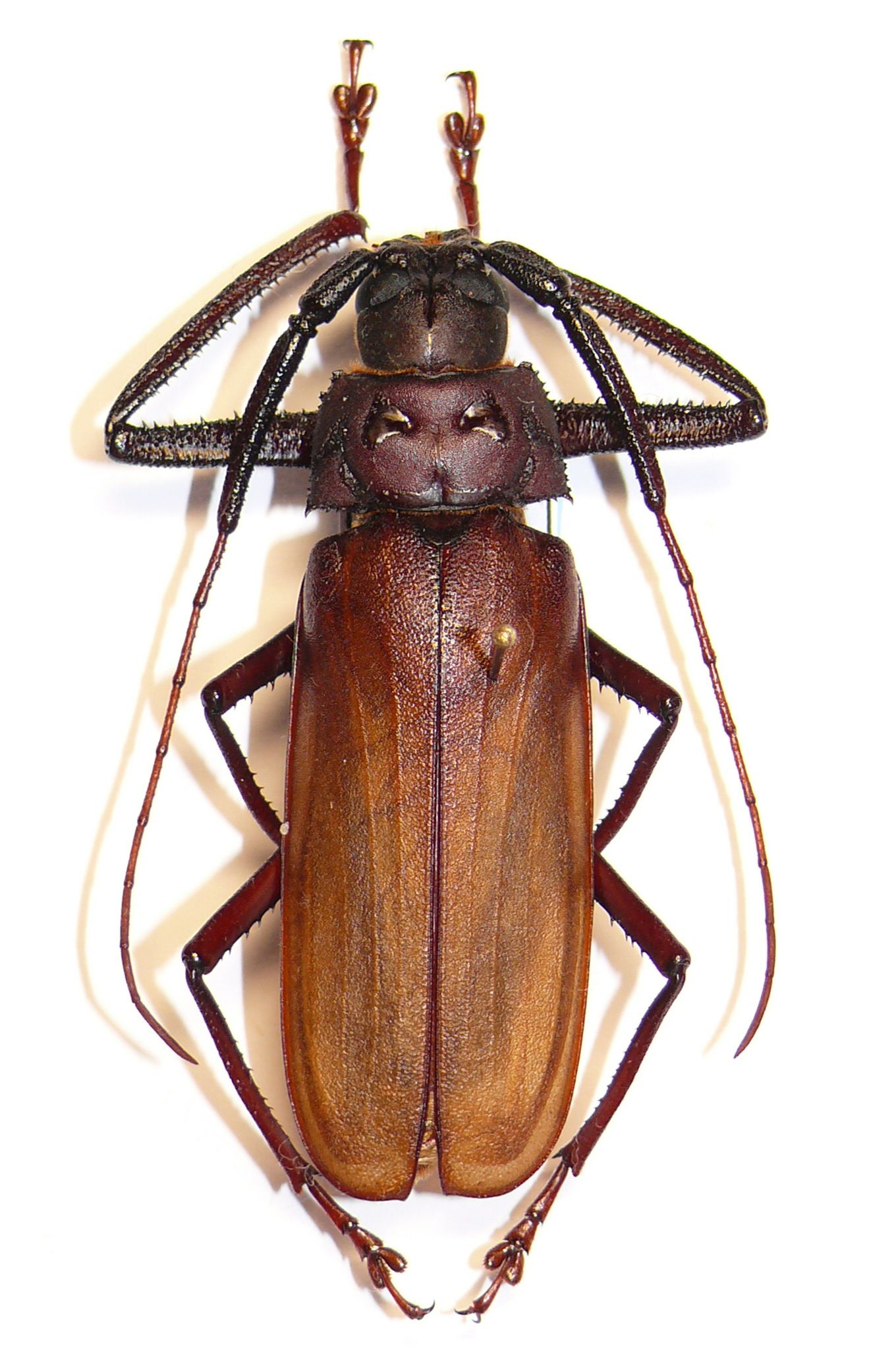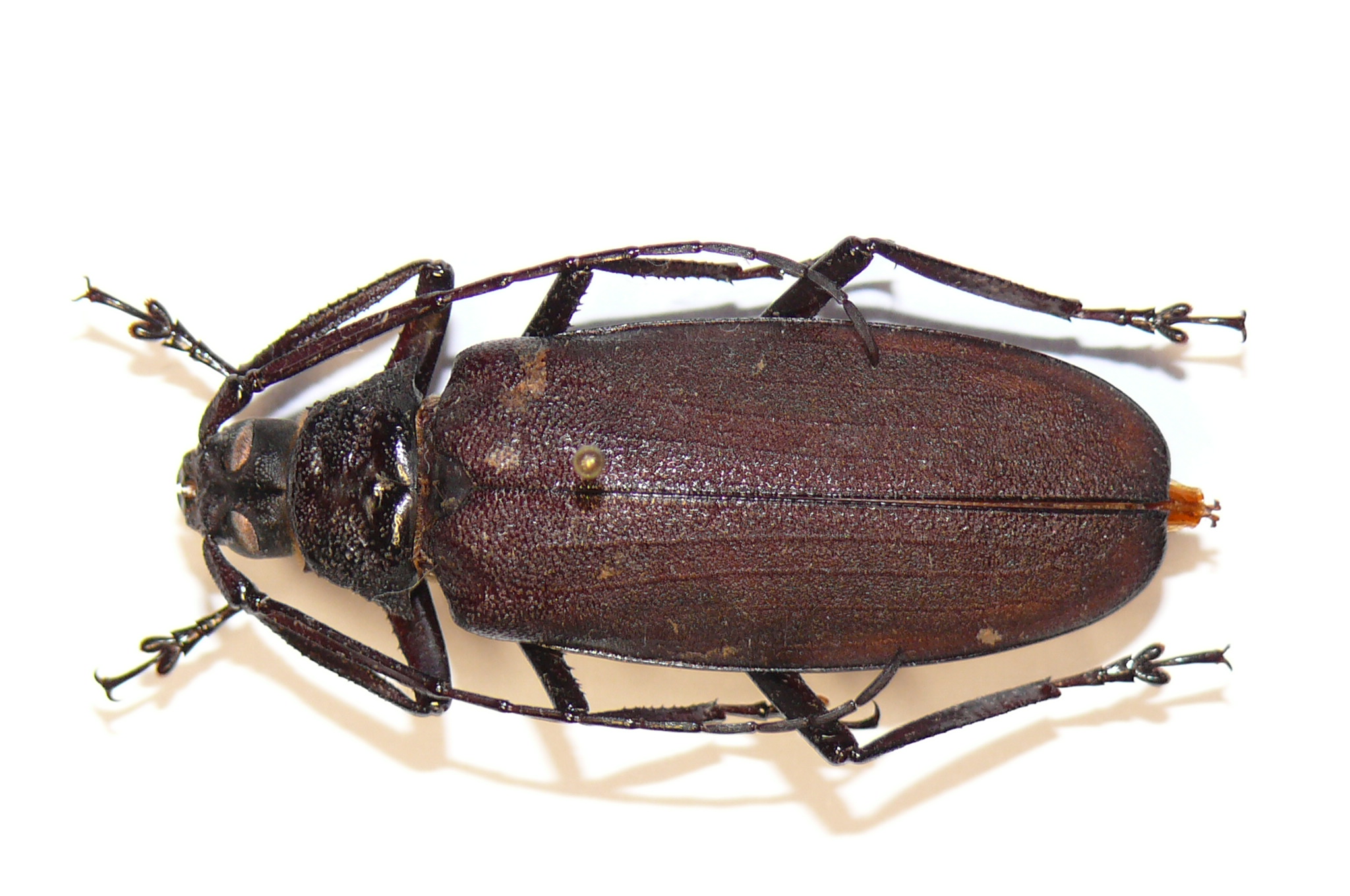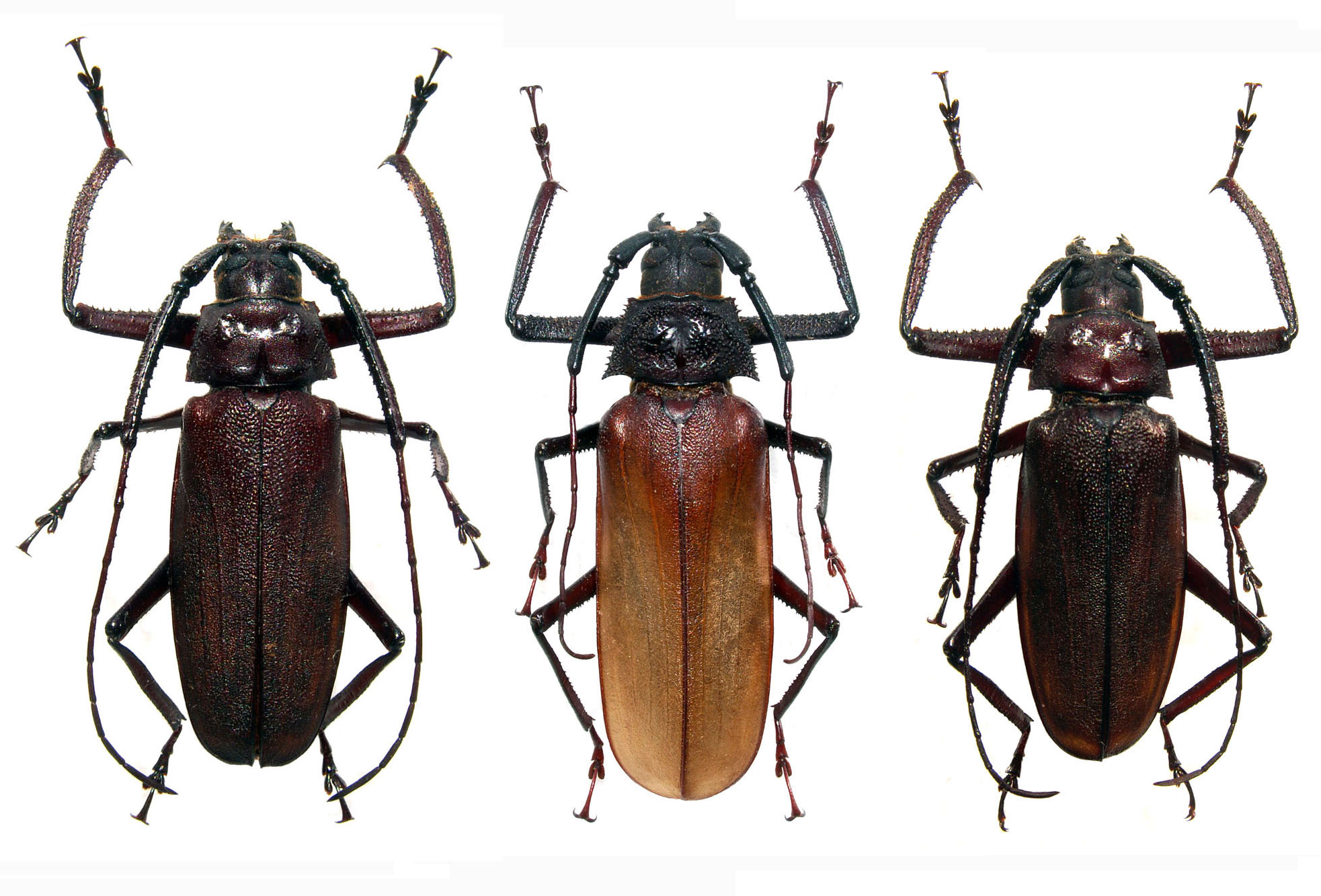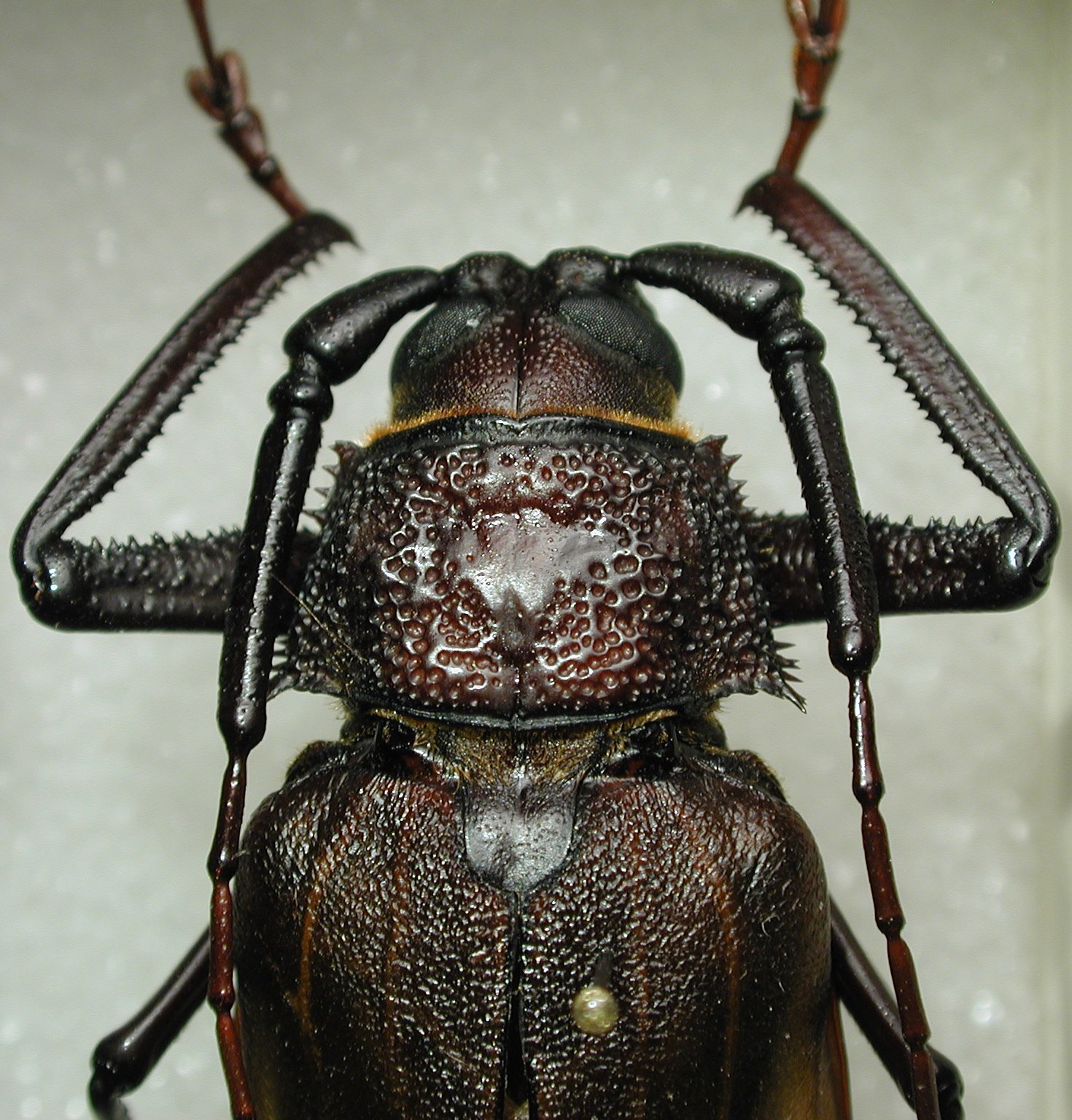| Author |
 Topic Topic  |
|
|
Jiri
Member Nathrius
Czech Republic
38 Posts |
 Posted - 05/11/2011 : 18:34:30 Posted - 05/11/2011 : 18:34:30



|

Hello,
this specimen is from Malaysia, Cameron Highlands... originally I thought it is Bandar pascoei, but now I am not sure if it is not any Anomophysis.
Could someone help me with the determination?
Thank you very much! |
Edited by - Capitaine on 06/07/2018 14:35:03 |
|
|
Francesco
Forum Admin
    
Luxembourg
9663 Posts |
 Posted - 06/11/2011 : 17:40:50 Posted - 06/11/2011 : 17:40:50




|
You are right: it is the male of Anomophysis malasiaca Quentin & Villiers, 1981.
The male pronotum of Macrotoma (and hence Bandar) is not very different from that of female, not having sexual punctures (= smooth areas).
Anomophysis is a more evolved genus, while Macrotoma inhabited Gondwana already during the Jurassic, especially that eastern region that originated India.
Some species left Africa in the Early Cretaceous (~120 Myr BP) and remained isolated in India for ~75 millions of years, evolving peculiar taxa (the so-called Bandar and Anomophysis).
Then they spread in Asia only in the Eocene (~45 Myr BP), when India collided with Asia (cf. VITALI, 2008 - Systematic revision of the fossil cerambycids from Geiseltal (Coleoptera Cerambycidae) - Entomapeiron (P. S.) 3 (1): 1-10)
|
 |
|
|
Jiri
Member Nathrius
Czech Republic
38 Posts |
 Posted - 06/11/2011 : 18:59:59 Posted - 06/11/2011 : 18:59:59



|

Thank you very much for determination and for the information!! I have determined in my collection as A.malasiaca specimens like this one ( it is from Borneo). |
 |
|
|
Francesco
Forum Admin
    
Luxembourg
9663 Posts |
 Posted - 06/11/2011 : 19:54:29 Posted - 06/11/2011 : 19:54:29




|
This should be a female.
Pay attention that the mentioned revision is very puzzled: some species are misidentified (A. hainana is actually A. katoi), some localities are missing, the descriptions are incomplete, the key is very complicated... M. Drumont told to me that another revision should be needed. |
 |
|
|
Capitaine
Scientific Collaborator
   
France
1850 Posts |
 Posted - 26/07/2015 : 15:18:58 Posted - 26/07/2015 : 15:18:58



|
I would like to re-open this post as I'm not convinced that it was the right determination. When you see at the picture here after (a specimen of bandar pascoei male flanked by two A. malasiaca male), the third antenal joint of malasiaca is longer and spiny and the elytrae are dark brown colored.
In addition, the antenal lenght of A.malasiaca exceed the elytrae apex.
In fact, excepted the sexual punctures on the pronotum, the habitus and coloration of this specimen match with the genus Bandar.
Therefore, I don't think that it is B.pascoei, it could be an other species of bandar or a new species.
B.khooi (Hayashi,1975) is known from Malaysia, but unfortunatly, I don't have any description or picture of this one and it is not B.kurosawai with the third antenal joint shorter.

411.91 KB |
Claude |
 |
|
|
Larry Bezark
Member Macrodontia
    
USA
2565 Posts |
 Posted - 31/07/2015 : 21:49:02 Posted - 31/07/2015 : 21:49:02



|
and from Central Vietnam
 
434.96 KB
Larry B. |
 |
|
|
Capitaine
Scientific Collaborator
   
France
1850 Posts |
 Posted - 05/01/2018 : 12:34:54 Posted - 05/01/2018 : 12:34:54



|
Hello Jiri, have you got any additional information about this specimen ?
Finally, regarding the pronotum shaping and third antennal segment, it seems close to the species Anomophysis inscripta (Waterhouse, 1884).. (but species reported from India and Nepal). |
Claude |
 |
|
| |
 Topic Topic  |
|


